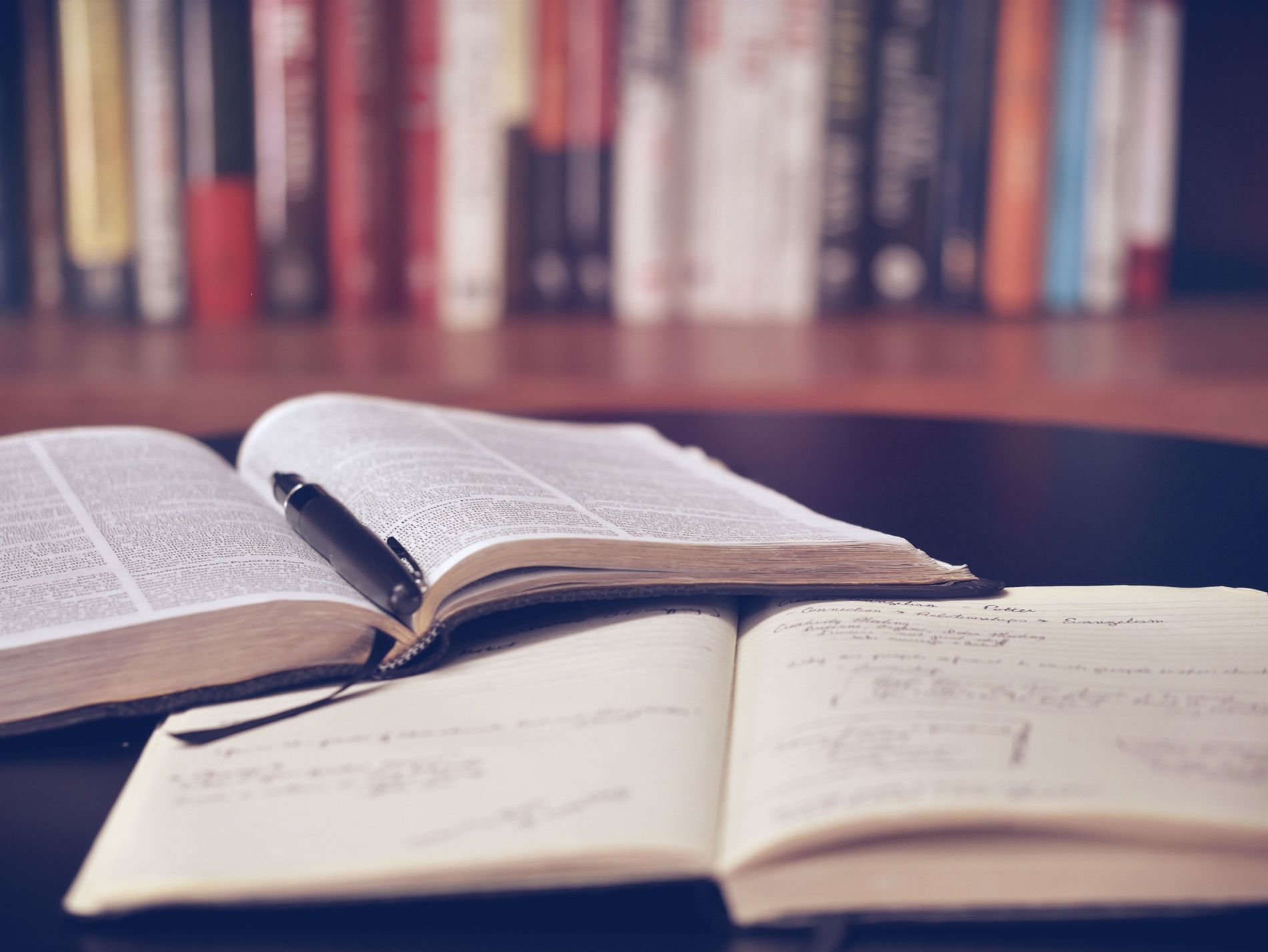We must find the most effective technique to deliberately integrate that information in order to put it to good use later until this educational model changes. We’re going to disseminate some methodology to help you learn how to study better today!
There are various routines that can help us enhance our results and avoid having disastrous scores, which are most likely the result of not studying enough or not being able to concentrate correctly.
We’re talking about practices that have been scientifically established in a number of studies, and the volunteers who took part in them received the highest grades.

Here are some study methods that you can use if you want to study more effectively, faster, and obtain better grades on your exams:
1) Tell someone about what you’re learning.
To listen to you, you’ll need a guinea pig. One of your parents, a sibling, or a friend could be the culprit. Describe what you’ve just learned. But don’t stop there: it has to be an explanation that piques the other’s interest.
2) Allow enough time for your brain to comprehend the information.
When you learn something new for the first time, whether through a book or a lecture, you should go over it again within 24 hours. You will avoid forgetting up to 80% of the material this way.
If we examine our notes again after a week, we will remember 100% of the material in just 5 minutes. Reference
3) Seek out a practical application for what you’re learning.
Studying effectively entails extending what you’re learning to your daily life and finding a practical application for it. There will be some things that will be simpler to bring to life and others that will be more abstract. Use your imagination to create something new. The process of seeking for a practical application can help to cement the information in your mind.
4) Time to study.
According to experts, the ideal approach to study is to do it on a daily basis and in a consistent manner.
But what if we don’t have time to do it on a daily basis? A study conducted by a group of psychologists from San Diego concluded that deferring learning until the last possible moment is a mistake.
The goal is to set aside a small amount of time each day.
If we have an exam in a week, for example, we should begin studying at least 5 days before the exam.
5) Take advantage of the Internet.
The finest thing you can do with the Internet is utilize it to research what you’re learning. Make the information audiovisual to make it easier for your brain to absorb. Is it better to look for videos on YouTube on what you want to learn or to make one yourself? But be careful not to become distracted!
6) Recite what you’ve learned in your own terms.
A psychology professor at the University of Washington revealed a fascinating study that demonstrated that understanding what is being studied is far more effective than memorizing concepts.
As a result, it is suggested that we read the lesson, close the book, and recite what we can remember, always as we have comprehended it.
7) Set up a reward for when you’ve completed your study session.
This approach is vital because it will make it simpler for you to begin studying, and you will want to study more effectively since you will be able to appreciate the present you have set up for yourself after that time. You must be motivated in order to study properly.
This incentive, which you will give yourself when you end your study day, will assist you in overcoming lethargy.
8) Reading comprehension.
Despite the fact that tablets and eReaders have dominated the market, they are not thought to be good for studying. According to experts, reading a lesson on the iPad takes up to 6.2 percent longer than reading a lesson from a printed book (with a Kindle it takes up to 10.7 percent more time).
Furthermore, according to a study conducted by a psychology professor at the University of Leicester in England, pupils should read the lesson many more times on an electronic device than in a book. Reference
9) Make the most of your time.
Forget about previous learning habits that teach you how to cram as much information into as little time as possible, and focus just on what you require.
Make a list of priorities and establish which elements are the most crucial, and we guarantee that everything will go more smoothly for you. Always begin with the most challenging task.
10) Make use of the Leither method.
This technique entails creating cards on which we will write questions concerning the subject being studied. The student will be required to answer them, and those that he erroneously replies will be sorted into a separate pile.
You’ll merely have to sift through this pile again later to learn from your errors. Reference
11) Get yourself motivated before you begin.
Set up 5 minutes to inspire yourself before you begin studying. Start thinking about what you’ll study and how you’ll organise your learning, then focus, inspire, and breathe.
Concentrating before studying is critical, and these 5 minutes will aid you in this endeavor. Close your eyes and imagine yourself getting a 7 on the exam, and how happy you will be.
12) Take care not to over-learn.
Researchers from the University of California, San Diego, and the University of South Florida discovered something incredible: a person who studies too much and does not take breaks will have difficulty learning.
Disconnecting, or taking your attention off the subject you’re studying, is beneficial, and we’ll see how knowledge accumulates on its own.
13) Make a distinction between crucial information.
All of the knowledge is condensed into a single brilliant concept. THAT IS THE IDEA ON WHICH YOU MUST BE CLEAR. Everything else, including its development and deepening, is a product of that idea.
14) Take in some music
Some studies, such as one conducted by a group of Stanford School of Medicine experts, have found that listening to a specific genre of music (particularly classical) helps to exercise certain areas of the brain that increase our attention.
Furthermore, it has the potential to increase our mood as well as our knowledge-consolidation habits.
15) Take advantage of the times of day when you are cognitively most productive.
Some people study better in the morning, while others study better after eating, and yet others study at night… What I do encourage is that you get enough sleep so that your mind can function properly (this is essential).
It is not a good idea to stay up all night researching. The University of Notre Dame conducted a study in which two groups of students participated, one studying at 9 a.m. and the other studying at 9 p.m.
Those who studied in the morning performed significantly better than those who slept the same amount of hours.
Concentration in the classroom is a vital factor that might determine whether you succeed or fail. Reference
16) Learn to unwind
Stress is harmful to our mental health. It is critical to take a couple of hours of relaxation and exercise after each period of study. We will be able to memorize considerably better if we minimize our stress levels. Reference
17) Avoid isolating yourself.
Of course, some people prefer to study alone. If this is the case, disregard what I’m about to say. It is, nevertheless, beneficial to surround yourself with others who are in similar situation and even studying the same subjects as you. You may both assist and motivate one another.
18) Find a method that works well for you.
Many study approaches are already old and do not always function as planned; the world changes, the way people learn changes, and students must choose what works best for them.
Don’t be afraid to experiment with different study approaches! Reference
19) Get into a flow state.
Your mind is entirely concentrated on studying in this stage, and all other distractions are isolated. Your mind gets more agile, and everything appears to be simple to you.
This is a difficult state to achieve. The sixth tip will assist you in making things easy for yourself.
20) Acquire the ability to build connections.
There are also studies that show that if we know how to connect concepts rather than memorize them, we will learn a lot more.
If the entire syllabus makes sense to us, we will perform considerably better on tests and be able to retain information for much longer. Reference
21) Visualization
Make an attempt to visualize abstract information. If you’re having trouble grasping an idea, visualizing is a wonderful place to start.
22) Keep your ideas in check.
It may seem foolish, but many studies (for example, Halpern in 1996, Carr, Borkowski, and Presley in 1987, and Garner in 1990) have demonstrated that learning to manage our thoughts can help us learn faster.
If you want to remember a grocery list that includes apples, milk, and beans, you should make a graphic with these products. For example, a large apple with eyes and legs is being milked by a cow, and the milk falls into a plate of beans.
23) Do you work out before you study?
According to a study conducted by Dr. Dougals B. Mckeag of the University of Indiana, participating in athletics causes the blood in our brain to flow more freely, allowing us to learn faster.
24) Change up the disciplines you’re studying.
It’s tedious and detrimental to always study the same thing; for example, if we’re learning vocabulary, we can mix it up with some reading. It is beneficial to change our studies if we are studying mathematics and also have a literary exam. This allows the brain to refresh.
There will be no test that you can’t pass if you follow these rules. Reference
25) Plan your study time as though you were preparing to climb a large mountain.
Get a diary and write down little goals every day (base camps). Every day, you must make your way to the base camp. The summit will gradually become seen.
26) Remove your watch from your wrist and place it in front of you.
You must schedule certain study sessions, which can last up to 45 minutes each. You can use the clock to help you keep track of these times.
27) Don’t study all night the night before the exam.
Before the exam, late-night study sessions do more harm than good. Weak grades, poor reasoning skills, and poor memory are all linked to them. One full night of studying can have a four-day unfavorable impact on the brain.
28) Avoid multitasking to study better.
The evidence is clear: multitasking makes us less productive, more distracted, and less intelligent. Even persons who claim to be skilled at multitasking are no better than the typical person, according to studies.
Effective pupils concentrate on one item at a time. So don’t try to study while checking your Twitter account, answering WhatsApps, or watching TV.
Here are some tips to help you focus better:
* Turn off your phone’s notifications.
* Turn off your phone.
* Shut down all instant messaging applications.
* Keep your study area neat and orderly.
29) Make a list of your issues.
Is this going to be a difficult test for me? What if I lose track of important concepts and equations? What if the exam proves to be more tough than you anticipated?

Leave a Reply